The United States entered World War I in 1917 on the allied side of Britain and France. By the time that World War I came around, the U.S. was a leader in recently discovered art of movie making and commercial advertising.
Such newly discovered technologies played a crucial role in shaping the American mind and altering public opinion into a pro-war position. The U.S. government didn’t have time to waste while its citizens made up their minds about joining the fight. So how could ordinary Americans be convinced to participate in the war?
I Want You for U.S. Army, 1917, James Montgomery Flagg
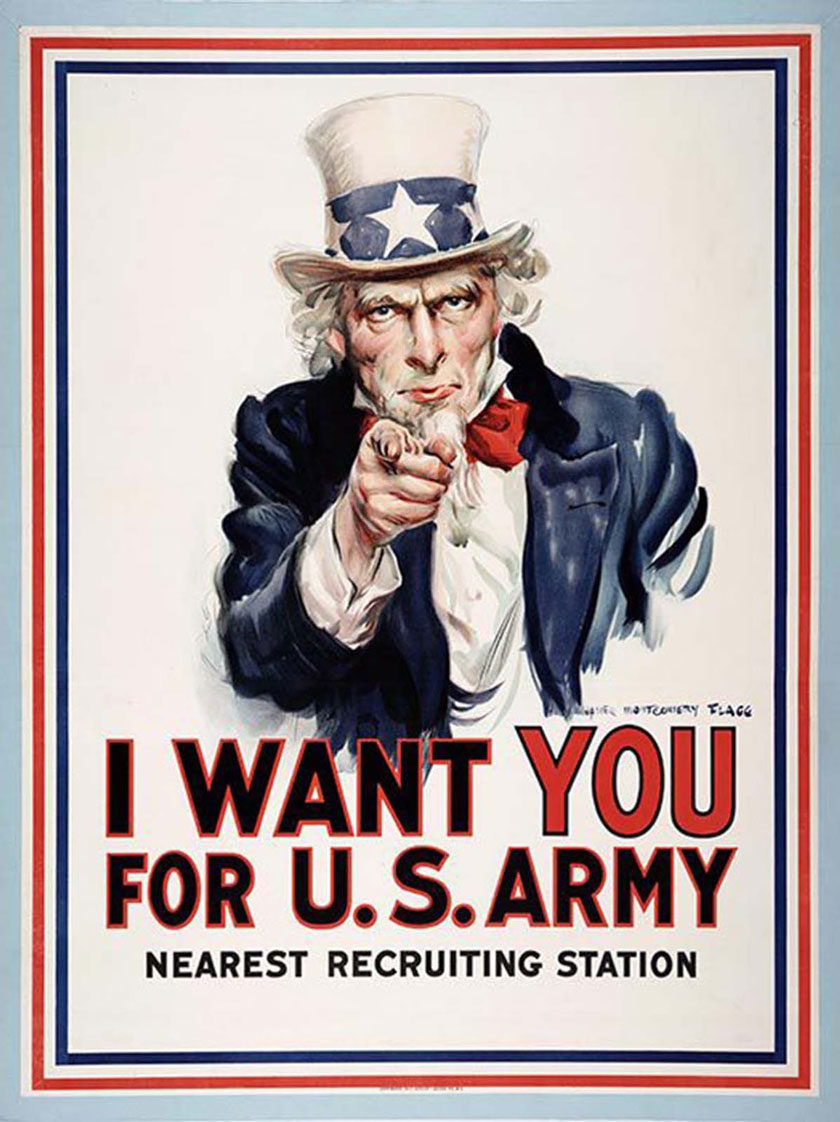
Photo credit: The Huntington Library
Posters, of course, which were so well designed and illustrated that people collected and displayed them in fine art galleries—possessed both visual appeal and ease of reproduction. They could be pasted on the sides of buildings, put in the windows of homes, tacked up in workplaces, and resized to appear above cable car windows and in magazines.
The U.S. government’s public information committee formed a Division of Pictorial Publicity in 1917. The committee, headed by former investigative journalist George Creel, emphasized the message that America’s involvement in the war was completely necessary in achieving the salvation of Europe from the German and enemy forces.
Creel wrote in his book “How we Advertised America” that the committee was called into existence to make World War I a fight that would be a “verdict for mankind”. He called the committee a voice that was created to plead the justice of America’s cause before the jury of public opinion.
Creel referred to the committee as a “vast enterprise in salesmenship” and “the world’s greatest adventure in advertising”. The committee’s message resonated deep within every ordinary American and also served as an organization responsible for carrying the full message of American ideals to every corner of the civilized globe.
Step into Your Place, 1915, artist unknown
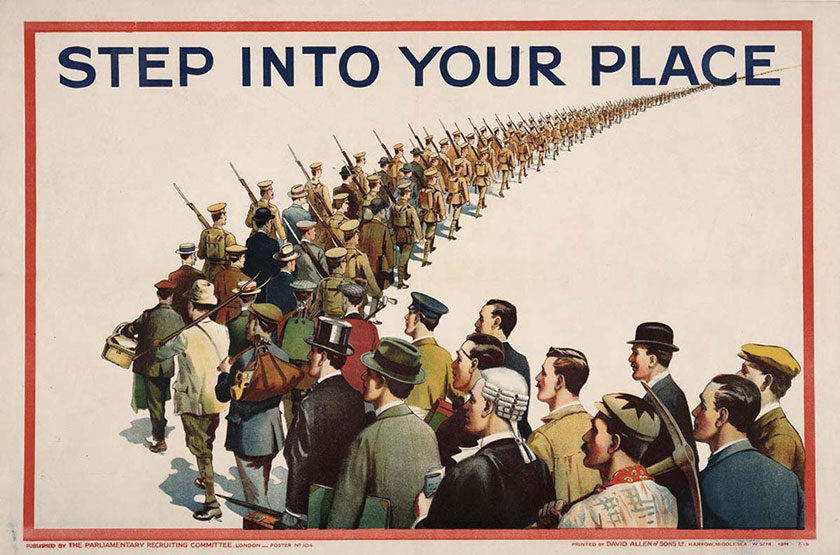
Photo credit: The Huntington Library
Wake Up, America! Civilization Calls Every Man Woman and Child!, 1917, James Montgomery Flagg
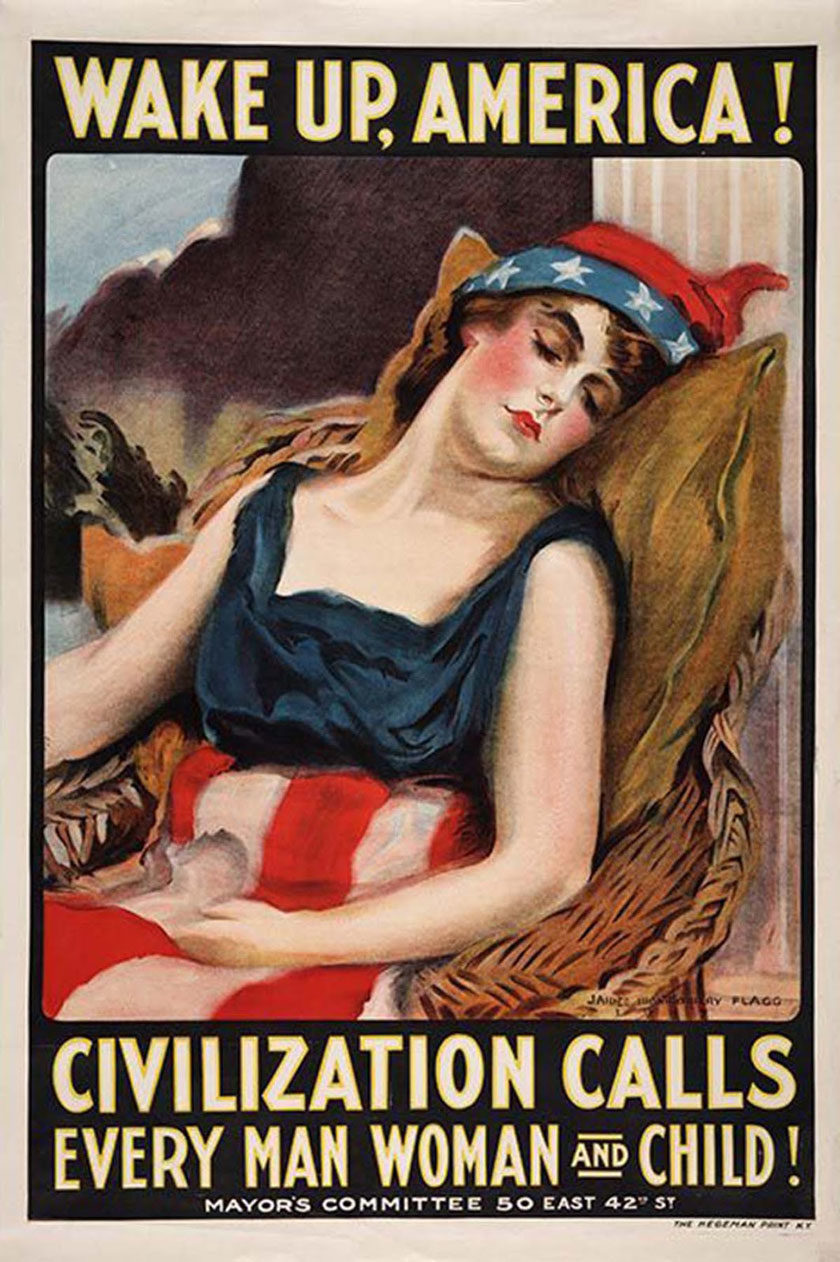
Photo credit: The Huntington Library
Enlist / On Which Side of the Window Are You?, 1917, Laura Brey
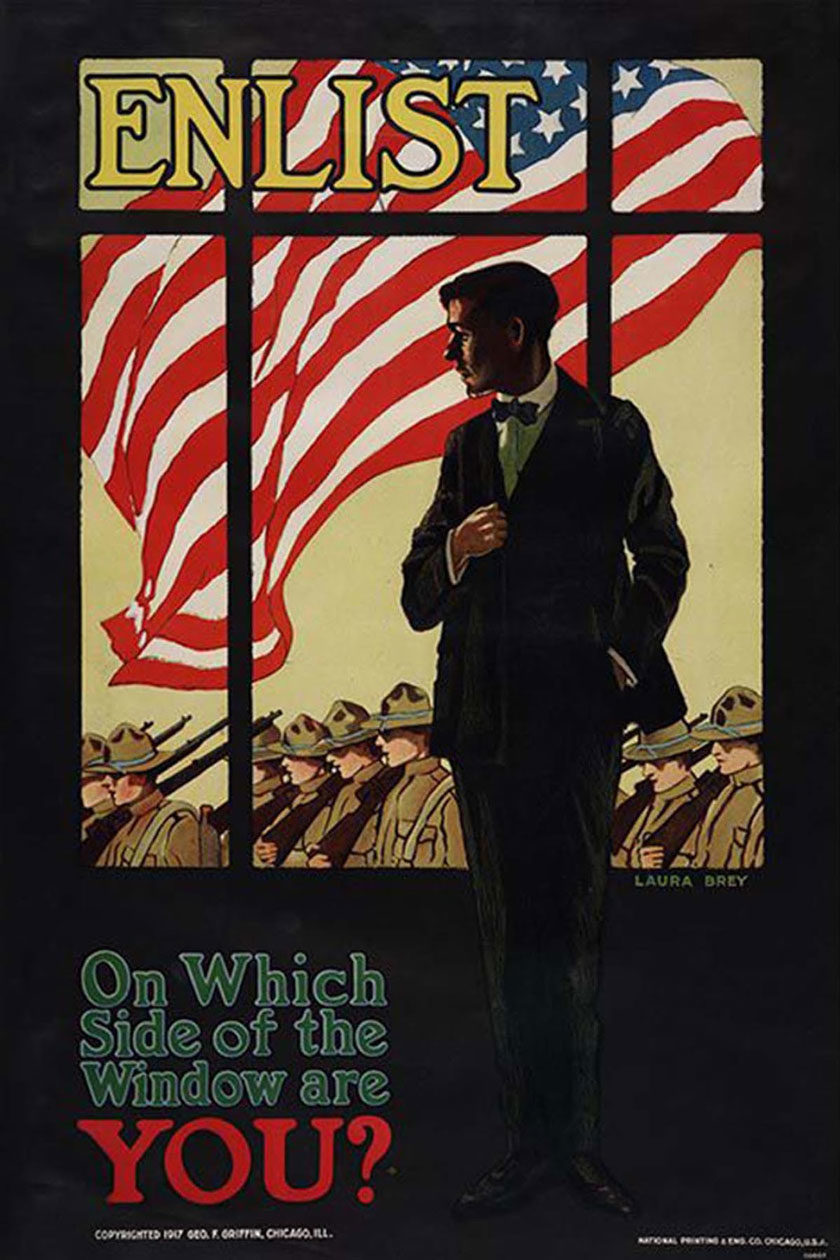
Photo credit: The Huntington Library
You / Buy a Liberty Bond Lest I Perish, 1917, Charles Raymond Macauley
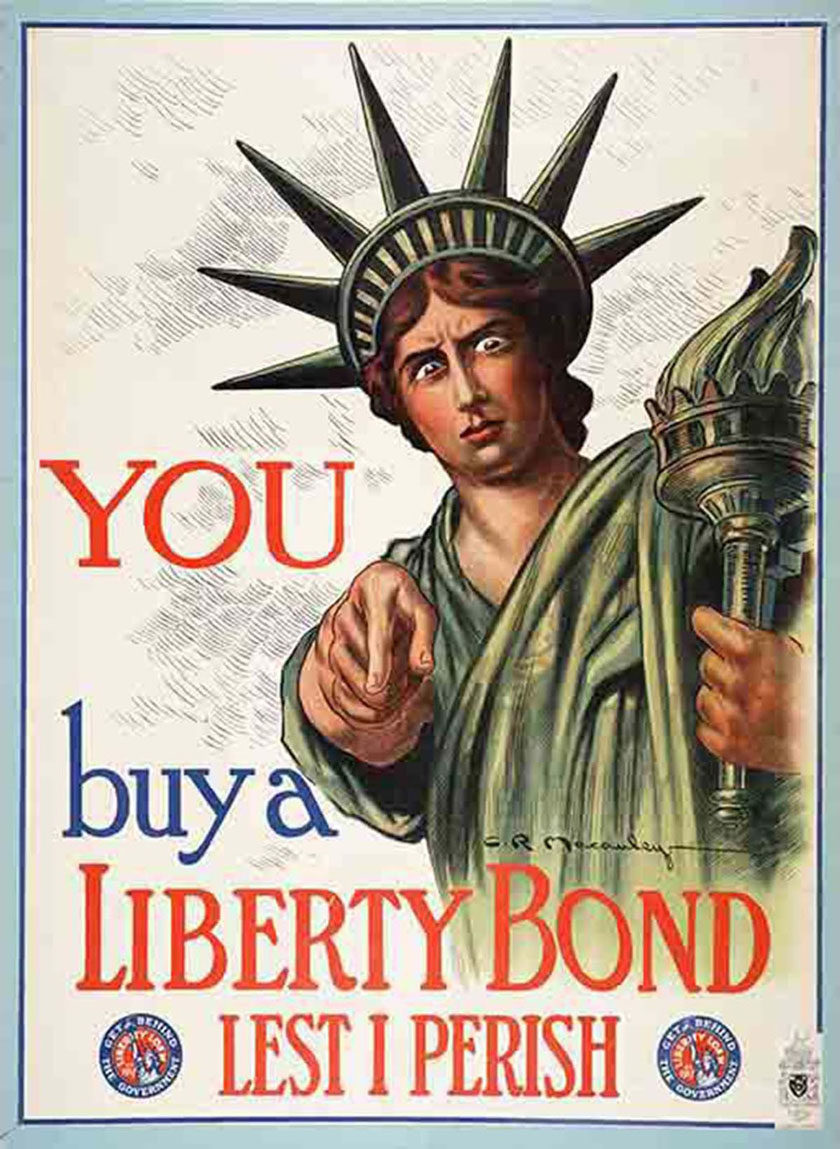
Photo credit: The Huntington Library
Help the Red Cross, ca. 1917, Herman Roeg
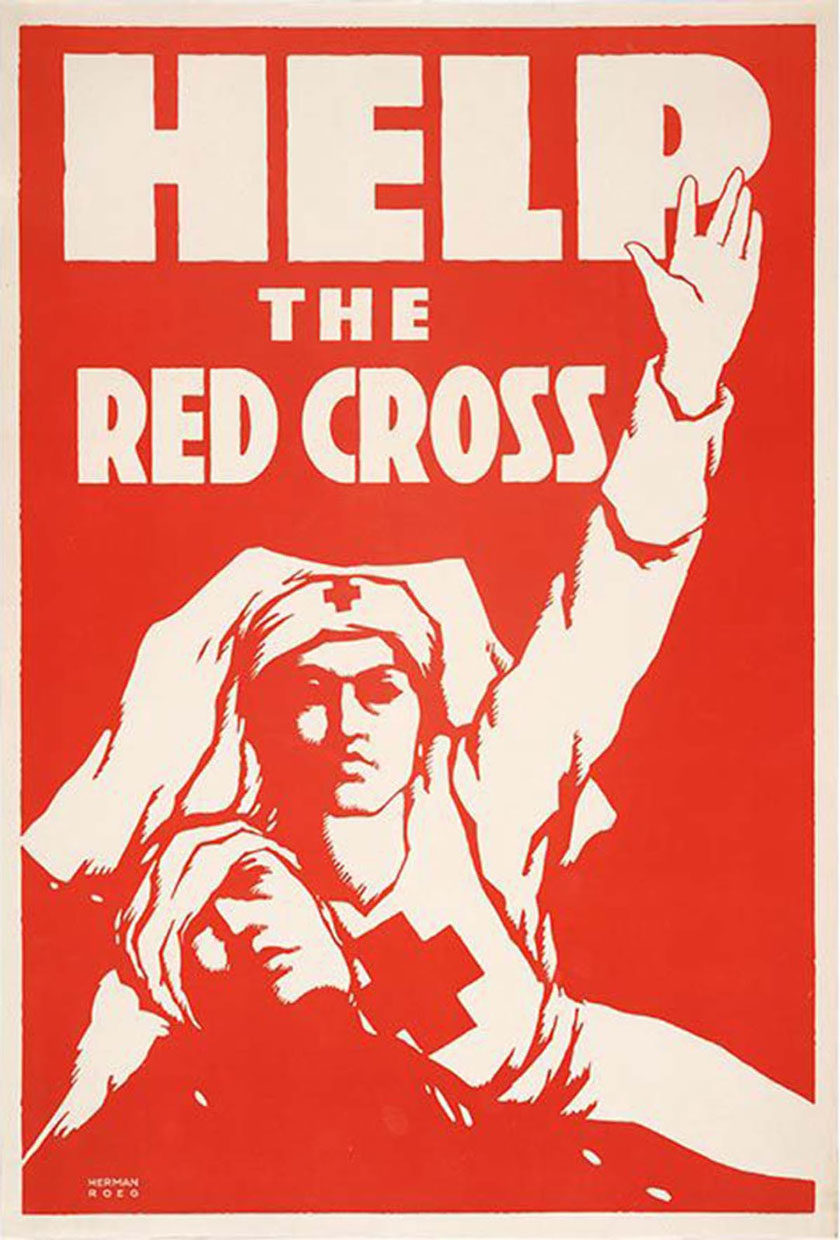
Photo credit: The Huntington Library
Il Cibo Vincerà la Guerra! (Food Will Win the War!), ca. 1917, Charles E. Chambers
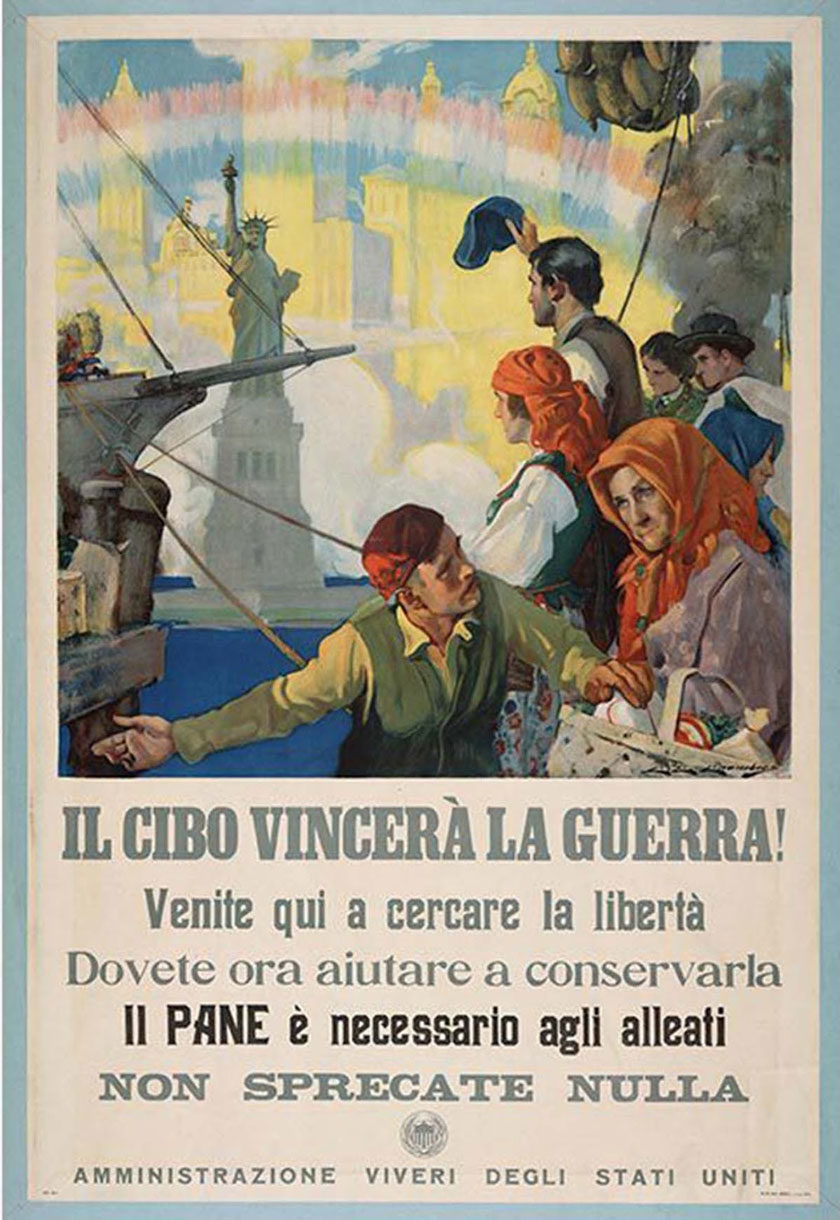
Photo credit: The Huntington Library
Preserve Co-operation, 1917, Carter Housh
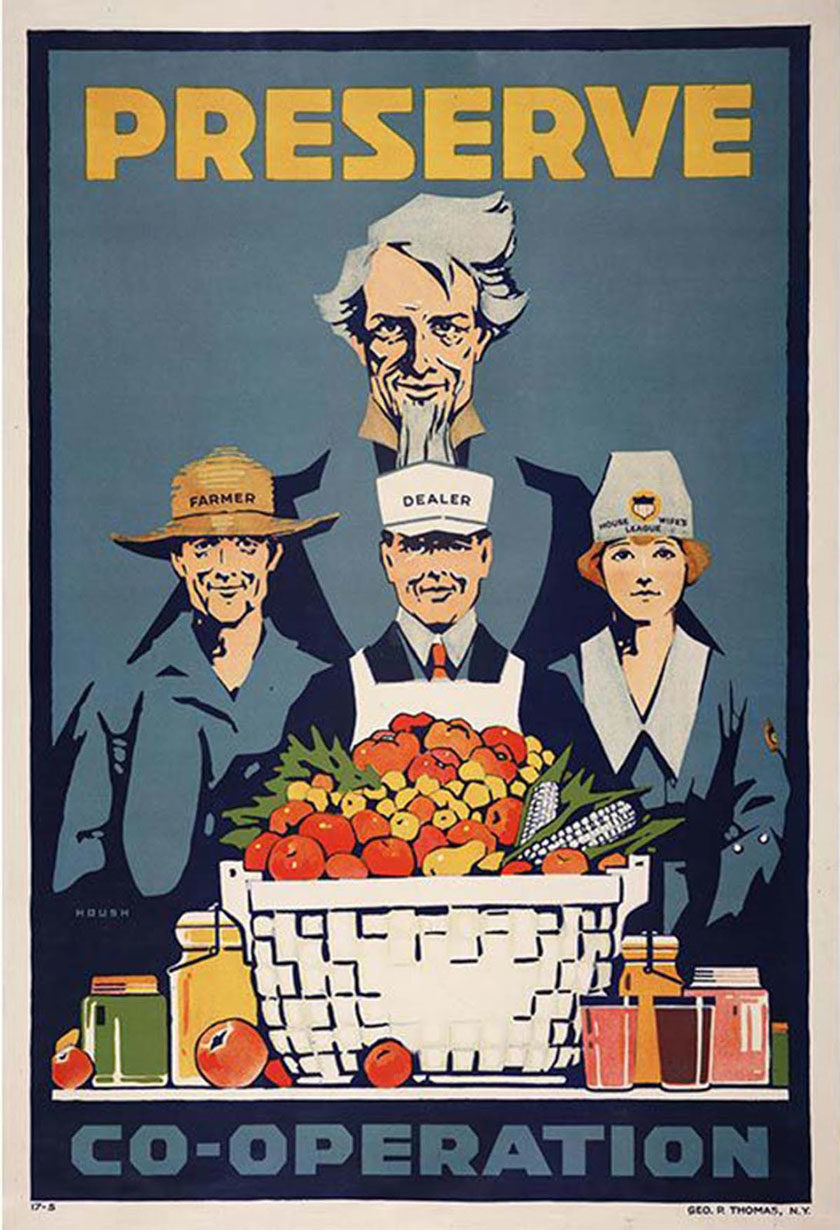
Photo credit: The Huntington Library
Treat ’em Rough / Join the Tanks United States Tank Corps, 1918, August William Hutaf
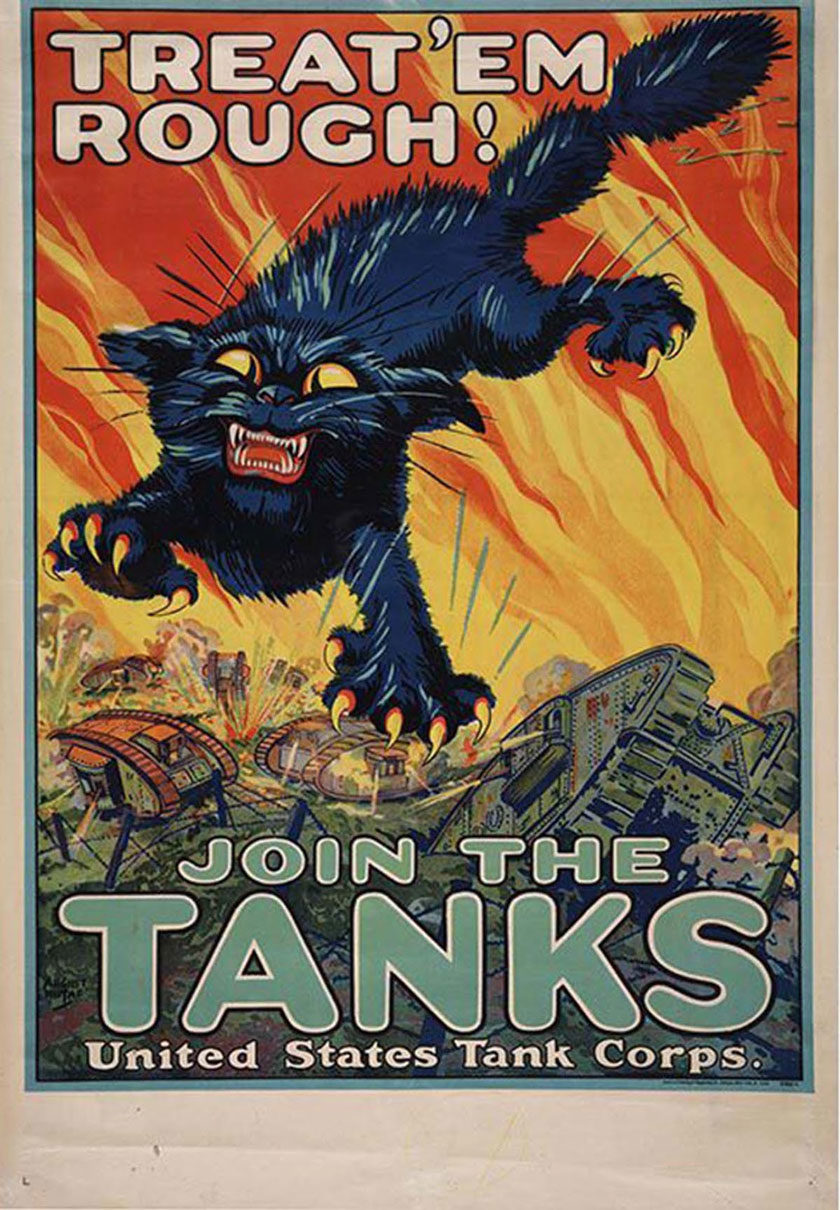
Photo credit: The Huntington Library
Teamwork Builds Ships, ca. 1918, William Dodge Stevens
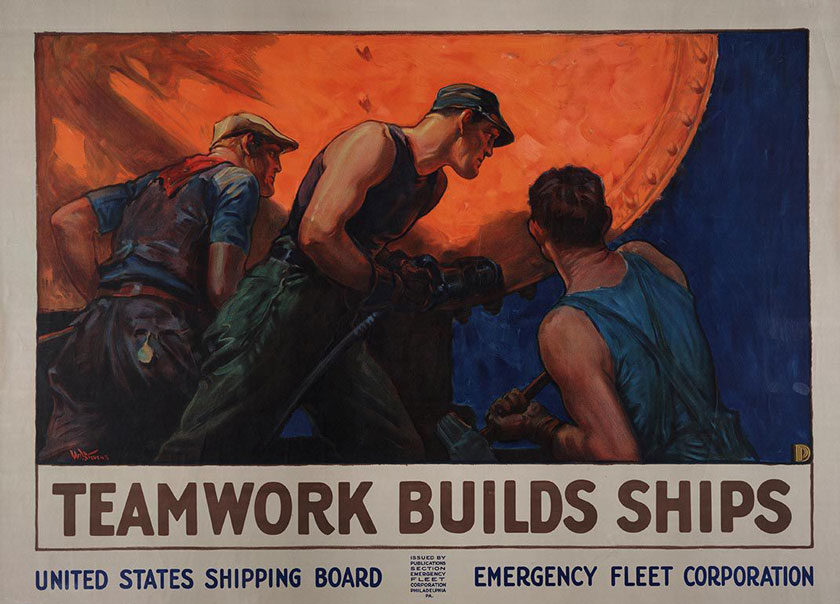
Photo credit: The Huntington Library
Hunger Breeds Madness, 1918, Emil Grebs
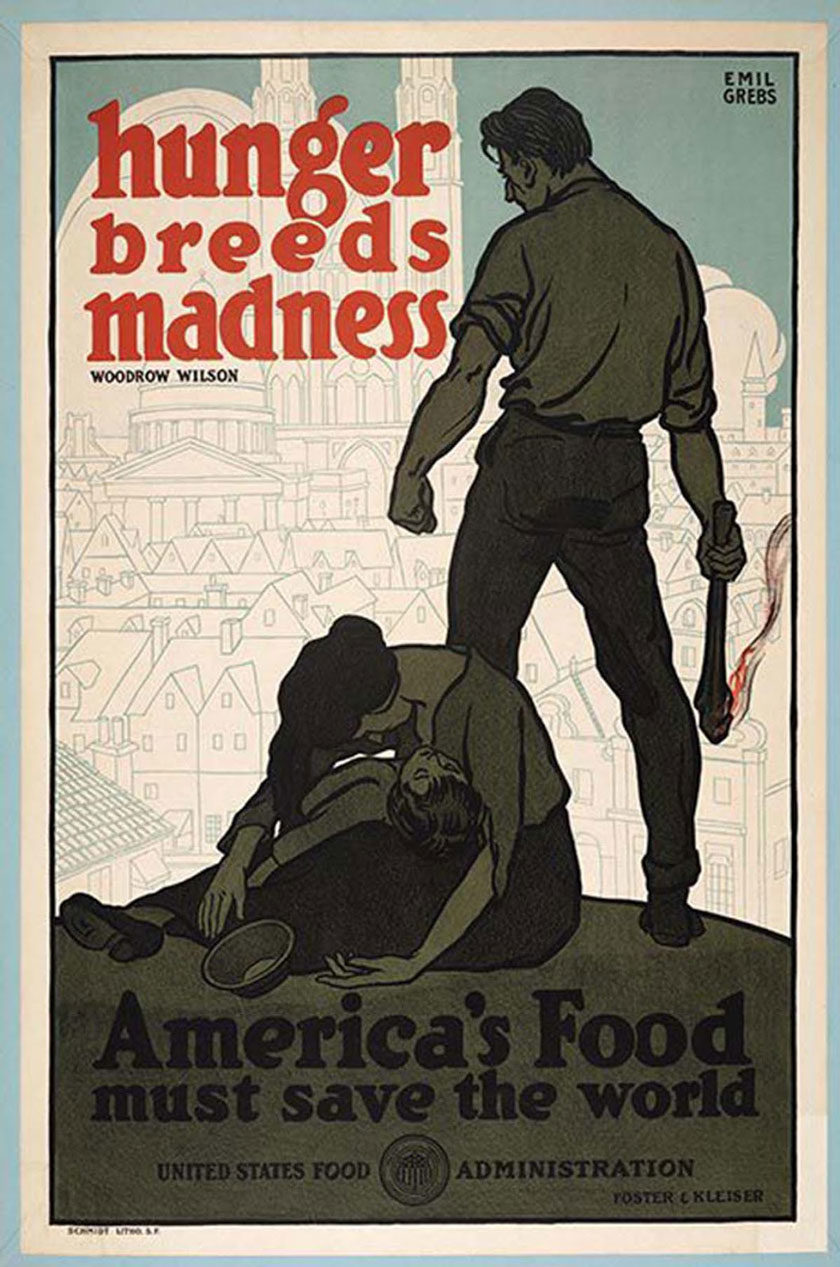
Photo credit: The Huntington Library
If You Can’t Enlist – Invest / Buy a Liberty Bond, ca. 1918, Winsor McCay
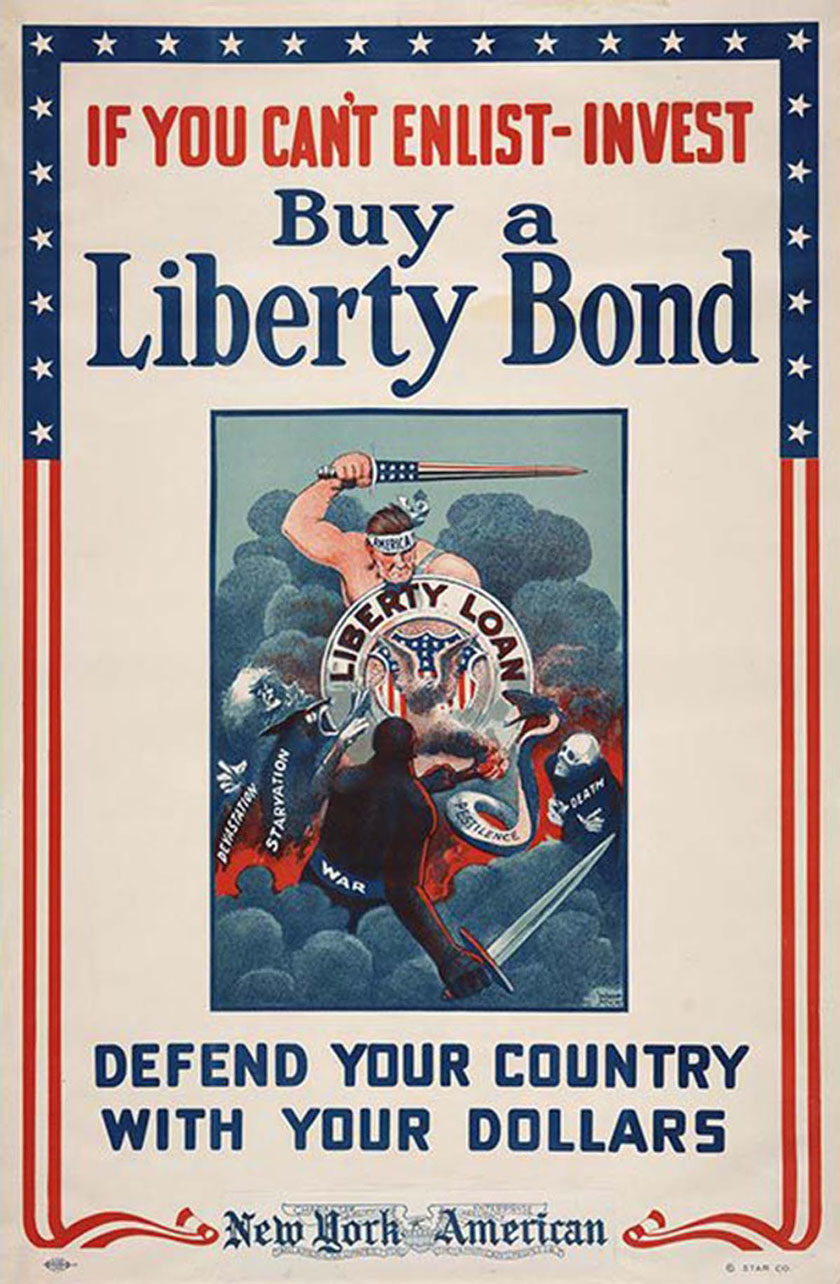
Photo credit: The Huntington Library

